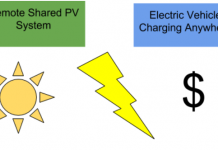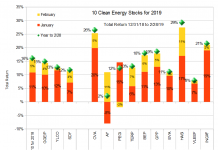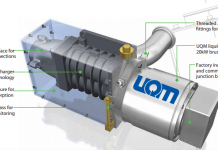by Clean Energy Intel
Westport Innovations (WPRT), provider of natural gas engine technology, received a major boost following the announcement of a co-marketing program with Royal Dutch Shell (RDS-A). Understandably, Westport itself rose 19.4% on the day. Perhaps less understandable was the 13.2% rise seen by Clean Energy Fuels (CLNE).
The agreement between Westport and Shell launches a co-marketing program in North America aimed at providing an integrated commercial solution for customers in the natural gas vehicle field. You can read a full description of the program in the press statement from Westport here. In essence, the agreement aims “at providing customers a better economic case when purchasing and operating liquefied natural gas–powered vehicles (LNGVs) by consolidating key value chain components such as fuel supply, customer support and comprehensive maintenance into a single, user-friendly package”.
Key quotes from the press statement from each of the two companies point to the intended strength of the agreement:
Firstly, David Demers, CEO of Westport Innovations said: “As a result of this initiative, we believe the use of natural gas as a fuel for transportation will accelerate. The North American launch is an important first step with Shell and we look forward to the continued proliferation of our advanced technology products and integration services.”
“We at Shell believe that natural gas, because of its abundance and strong environmental profile, is a destination solution in the transportation fuels space. This alliance with Westport will allow us to bring these benefits to market in a way that I believe can potentially transform fuel consumption in the heavy-duty vehicle segment for years to come,” said José-Alberto Lima, Shell Vice President for LNG & Gas Monetization.
The fact that an oil company is putting its muscle behind natural gas as a fuel for the trucking sector is unequivocally good for the future of natural gas transportation. It is also clearly very bullish for Westport, particularly since the agreement is intended to apply ‘initially in North America’, implying that if successful it could be rolled out elsewhere. The Shell deal also follows on Westport’s success in securing an agreement with GM over the development of natural gas engines.
However, the 13.2% rise in Clean Energy Fuels is more questionable. The company’s strategy was largely based on rolling out a natural gas refueling infrastructure before the mainstream oil companies moved into the market, hopefully aided by the passage of the Natural Gas Act. Unfortunately, voting on the Natural Gas Act was postponed last year and it has yet to pass. And now Clean Energy Fuels faces serious competition.
Since Westport provides natural gas engines, it makes little difference to the company’s strategy who provides the natural gas fueling infrastructure. All that it important is that trucking companies will be assured that the infrastructure will be there. If, however, Shell is going to roll out such an infrastructure across the main trucking corridors, there is less of a clear roll for the much smaller Clean Energy Fuels.
One final point is worth noting. CLNE’s backer T. Boone Pickens and the company’s CEO Andrew Littlefair have both disposed of a reasonable amount of stock in the company recently. Most significantly, in the three days between August 30th and September 1st Mr Pickens sold 1,319,488 shares for a total value of $17,632,200.
T. Boone Pickens and Clean Energy Fuels have done an excellent job in putting the case for natural gas trucking before the market. However, in the end Shell may well just represent too much competition for a relatively small pioneering outfit.
Disclosure: I have no positions in the stocks discussed.
About the Author: Clean Energy Intel is a free investment advisory service produced by a retired hedge fund strategist who also manages his own money inside a Clean Energy investment fund.








